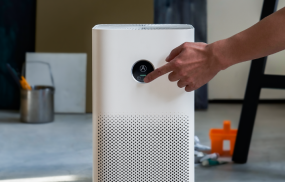Healthy Living Stories

Functional Fitness Benefits That Boost Energy: How Vitality Exercises and Strength Training Power Daily Life
Discover the key functional fitness benefits that boost everyday energy. Learn how vitality exercise and strength training enhance real-life strength, balance, and overall wellness. 
Lower Cortisol Naturally: Anti-Stress Foods and Smart Stress Nutrition Choices
Learn how to lower cortisol naturally with anti-stress foods and science-backed stress nutrition tips that support mood, energy, gut health, and long-term resilience. 
Ear Pain Causes Explained: TMJ Symptoms and Referred Pain from Jaw or Teeth
Learn common ear pain causes, TMJ symptoms, and referred pain—how jaw and dental issues mimic ear infection and how doctors diagnose and treat them. 
Brain Fog Causes and Cognitive Issues: How Doctors Diagnose and Treat Mental Fatigue
Learn common brain fog causes and persistent cognitive issues—how clinicians diagnose and treat mental fog with evidence‑based lab testing and targeted therapies. 
Why Wounds Heal Slowly: Key Nutrient Deficiencies and Diabetes Symptoms to Watch
Persistent wounds can signal slow wound healing from nutrient deficiencies or diabetes symptoms; learn key causes, lab markers, and treatment approaches. 
Sudden Dizziness Standing Up? POTS Symptoms, Low Blood Pressure, and Dizziness Standing Up Explained
Learn why dizziness standing up happens, how to spot POTS symptoms versus low blood pressure, and when recurring episodes mean it's time to see a doctor. 
Night Muscle Cramps: Top Leg Cramps Causes, Electrolytes Imbalance, and How to Stop the Pain
Discover why night muscle cramps strike, key leg cramps causes, and how electrolytes imbalance, hydration, and stretches help you relieve pain and prevent future episodes. 
Chest Tightness Causes: The Hidden Triggers Behind Anxiety Chest Pain and Non-Cardiac Chest Pain
Learn about chest tightness causes beyond heart issues, including anxiety chest pain and non-cardiac chest pain, plus symptoms, red flags, and when to seek medical help. 
Why Your Heart Skips a Beat: Benign Heart Palpitations vs Dangerous Arrhythmia Signs
Why a heart skip beat is often harmless, how benign palpitations feel, real arrhythmia signs to watch for, and when to see a doctor. 
Dermatologists Reveal Skin Aging Causes in Hot Climates and Harsh UV Exposure Effects
Dermatologists explain why skin ages faster in hot climates, focusing on skin aging causes, UV exposure effects, and proven ways to slow damage. 
High Uric Acid Warning: Hidden Gout Triggers in Purine Foods You Eat Every Day
Discover how high uric acid, gout triggers, and purine foods are connected, plus practical diet tips to prevent painful gout attacks and support joint health. 
What Stress Really Does to the Brain: The Science of Cortisol and Its Hidden Mental Effects
Stress changes brain structure, memory, and emotions. Learn how cortisol reshapes the hippocampus, prefrontal cortex, and amygdala—and what these effects mean long-term. 
Guide to Anti-Inflammatory Foods: What Diet Science Really Supports
How do anti-inflammatory foods actually work? This evidence-based guide details what diet science supports for inflammation, heart health, arthritis, and overall wellness. 
How Much Water Per Day? Hydration Myths and Warning Signs of Dehydration
Discover how much water per day you really need, learn key dehydration symptoms, and get practical tips for healthy daily water intake to stay hydrated. 
Air Purifier Benefits for Allergies and Indoor Air Quality: What Science Really Shows
Improve your health with air purifier benefits. Discover how better indoor air quality reduces allergies and supports respiratory wellness backed by scientific studies.



























